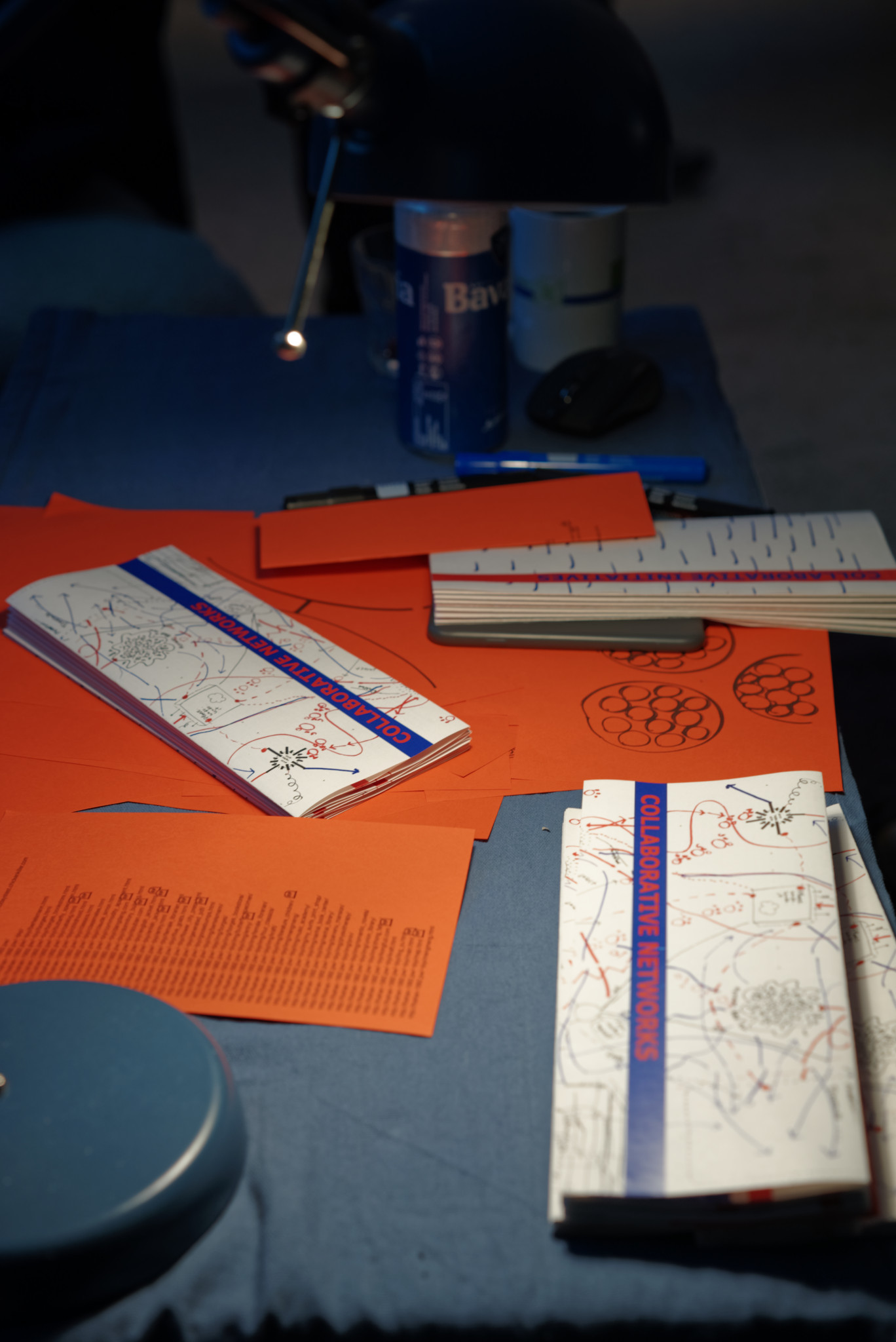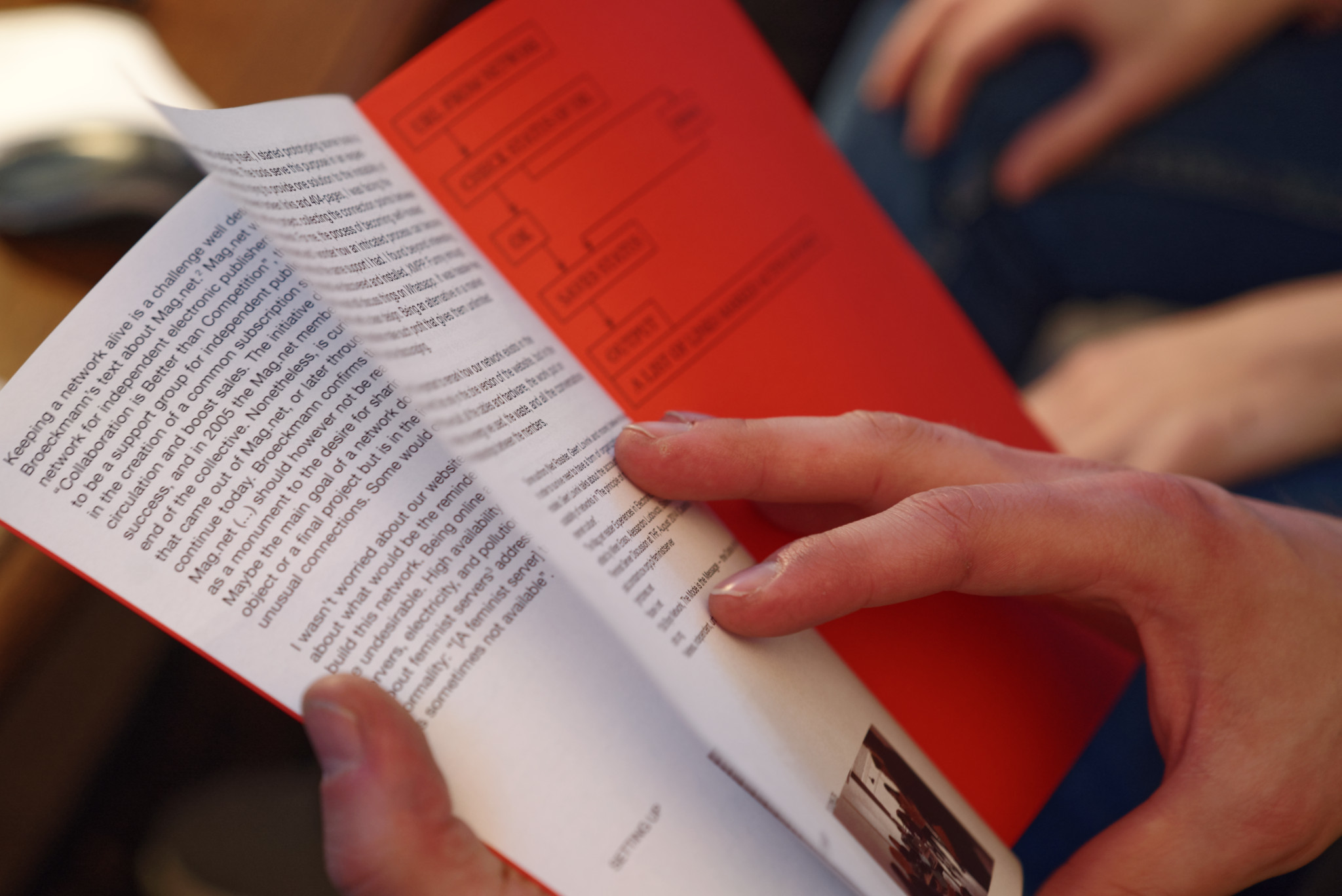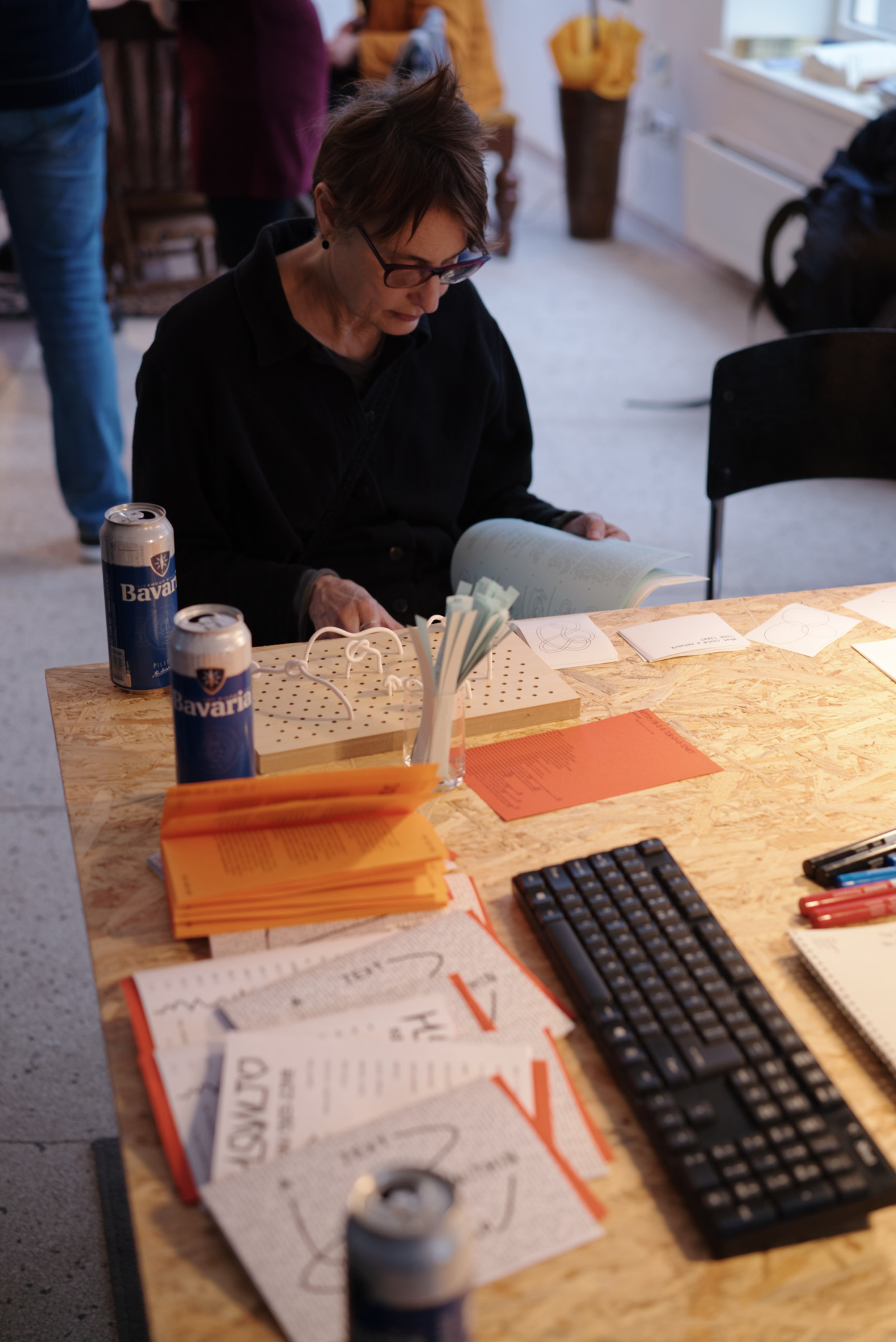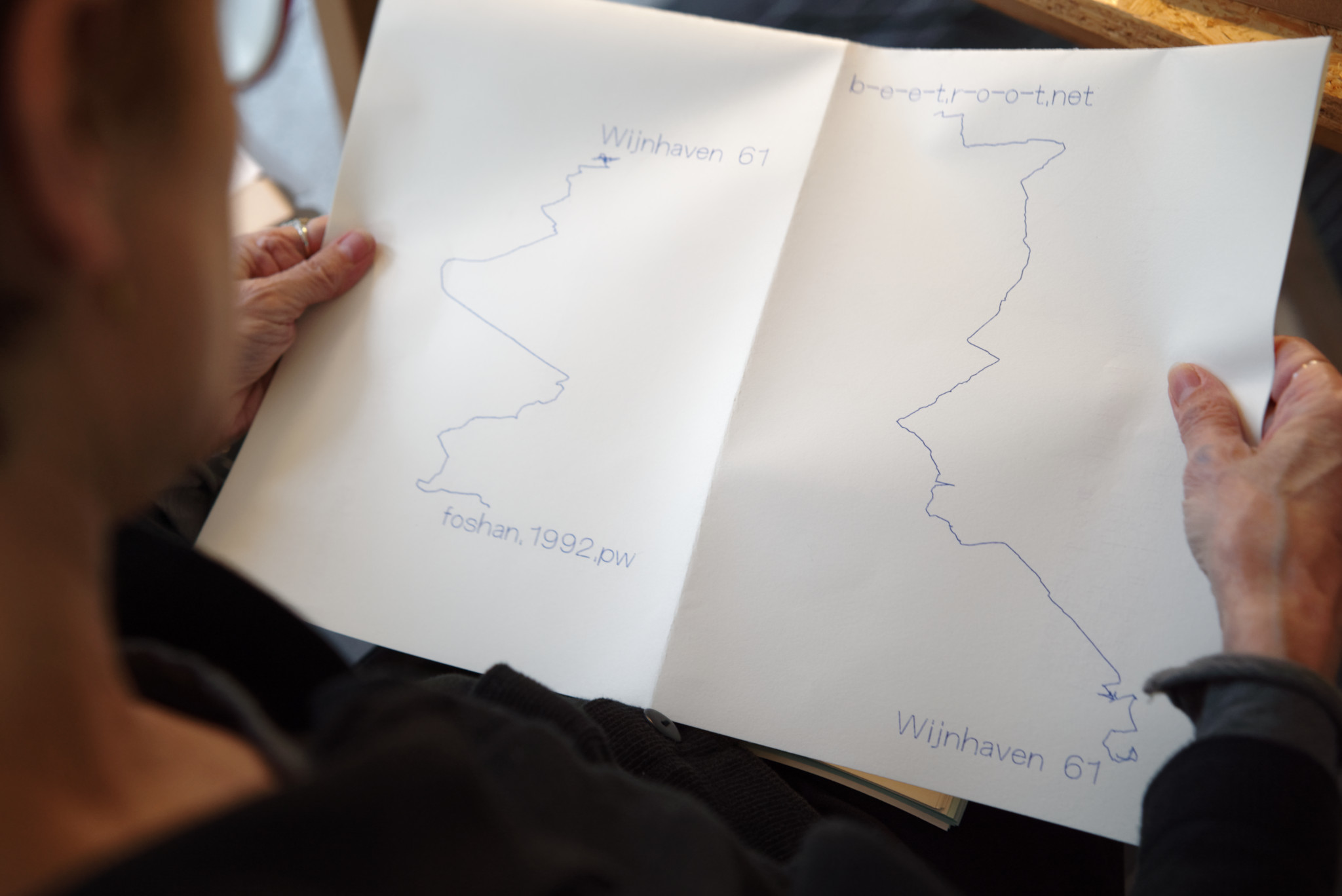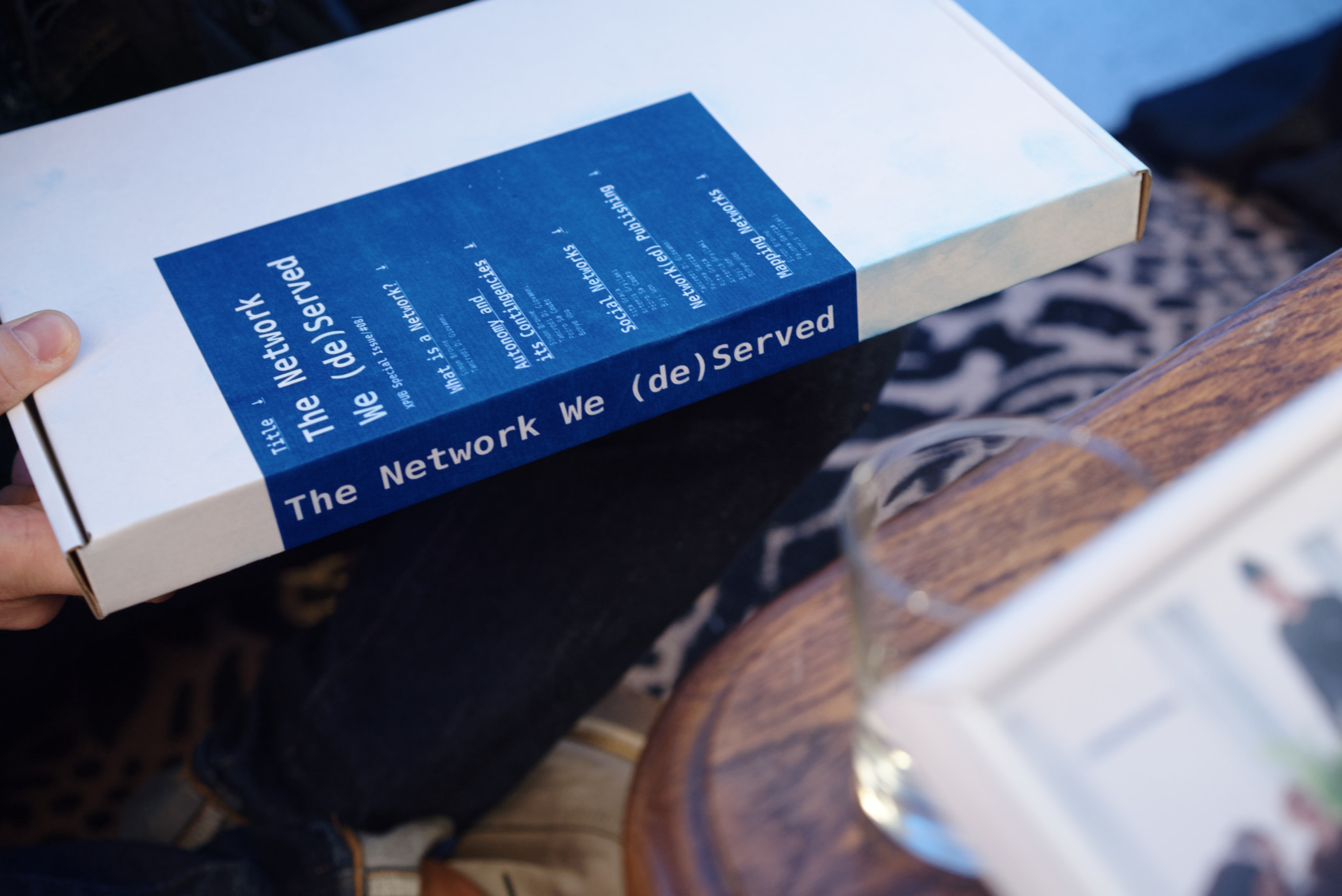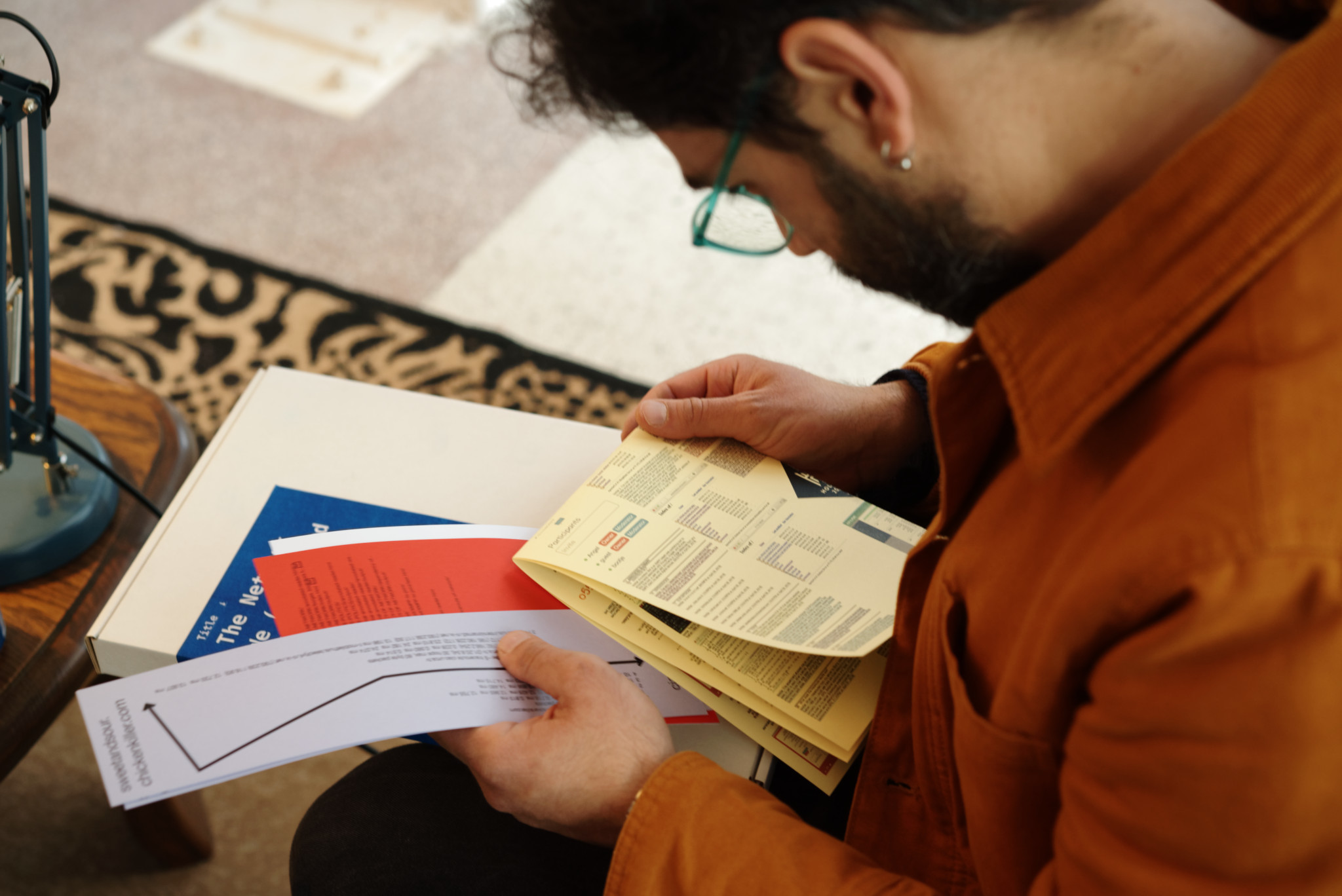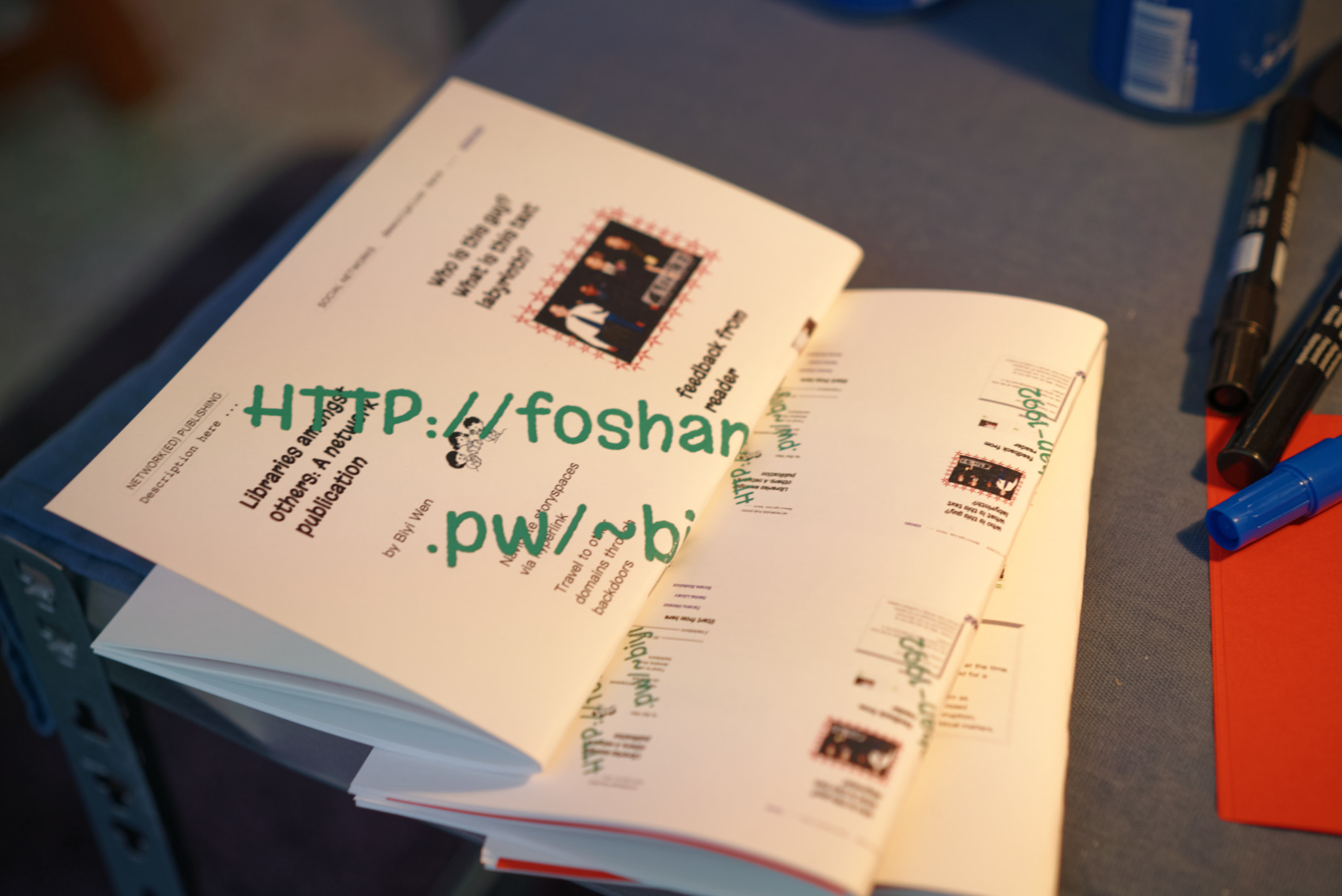Special Issue 08
The Network We (de)Served
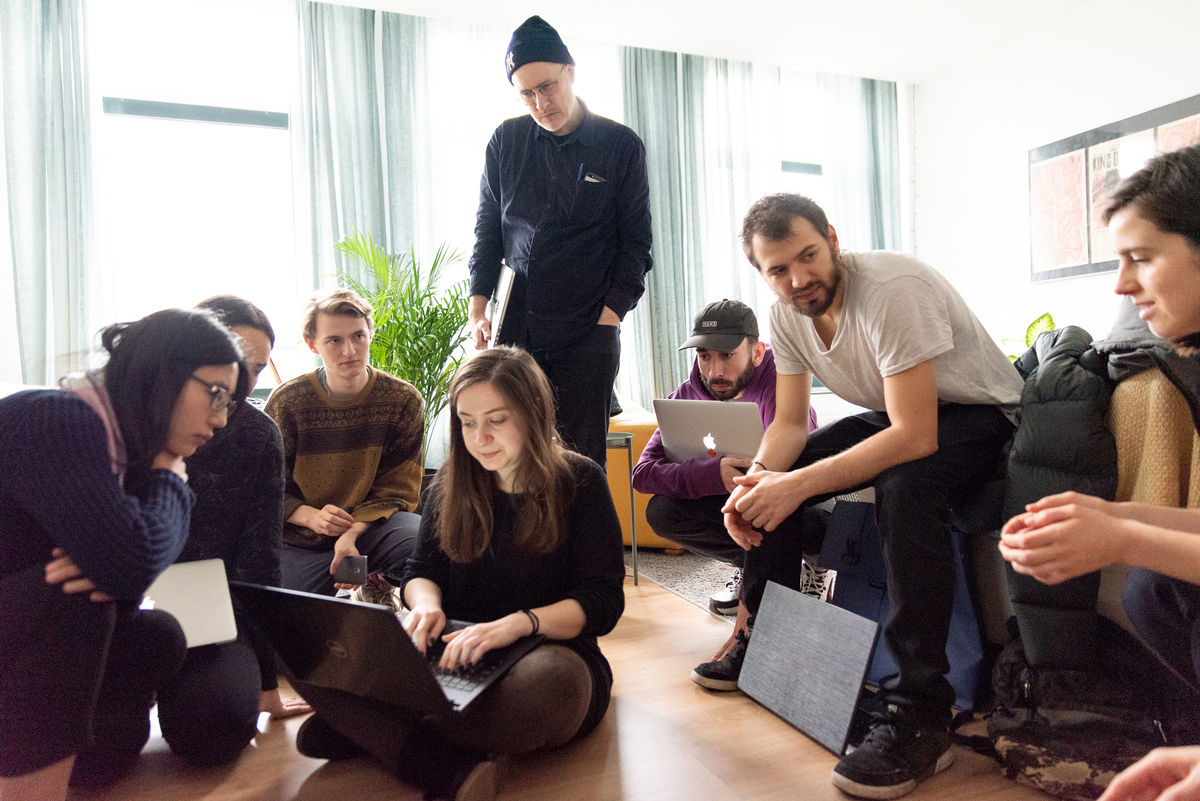
The Network We (de)Served became a site of learning for a group of experimental publishers to explore how networked technologies could become publishing tools. We traversed several layers, from local area networks to the web and the larger internet. We spent time examining different protocols and network concepts such as IP, DNS, HTTP, SSH & XMPP that are inherently part of the networked infrastructures we use every day. Eventually, we moved from using the IP addresses of our home connections, to making use of and mapping these to domain names acquired at gratis DNS providers, using traceroutes to find out how we were interconnected with each other, and how to cross-reference these connections with hyperlinks. Sometimes it was frustrating, but mostly it was a lot of fun.
Contributors: Simon Browne, Tancredi Di Giovanni, Paloma García, Rita Graça, Artemis Gryllaki, Pedro Sá Couto, Biyi Wen, Bohye Woo, Roel Roscam Abbing, Manetta Berends, Lídia Pereira, André Castro, Aymeric Mansoux, Michael Murtaugh, Steve Rushton, Leslie Robbins.
Brought to you by the Master of Arts in Fine Art and Design: Experimental Publishing (XPUB) of the Piet Zwart Institute, and Varia, Centre for Everyday Technology, Rotterdam, April 2019.
The Infrastructour
We travelled from home to home by bicycle, setting up home servers. As friends and companions on this Infrastructour, we studied our routers over drinks served by our hosts. Where possible, we installed our servers in our homes; in other cases we had to depend on another member of the group. While self-hosting together we questioned our understandings of networks, autonomy, online publishing and social infrastructures, where each of us departed from a different question. We would like to share our personal (yet interconnected) routes with you, tell you a story, present our web- and printed zines, and invite you to explore our homebrewed network.
Out of this work has emerged a series of mixed media publications that are based on the individual experiences, questions and investigations. These publications take the form of handcrafted HTML webzines that exist online on the various self-hosted servers, and offline as their HTML-to-print equivalents. Together they form a distinct set of perspectives on issues ranging from network politics, publishing methods, visualisation, mapping and graphing of human and machine topologies, to reflections on online sociality. These distinct perspectives have been grouped in a few categories that the reader can use as a guide through the publication.
Categories
What is a network?
We discuss questions ranging from the relationship between topology and geography, to the interrelation between technical and social networks. In particular, we are looking at networks of home servers, networks of hosts taking care of these servers, the infrastructure of the city as a network of routes, and the network as a collection of interconnected related topics in our research.
Autonomy and its contingencies
Gaining agency in a network through self-hosting can easily be mistaken for autonomy. Indeed, since the very first “Declaration of Independence of Cyberspace”, networked environments have been rife with discussions surrounding free speech, freedom, independence and autonomy. The practice of self-hosting, however, simultaneously questions these one-dimensional understandings of autonomy as it opens up questions of materiality, skills, access, privileges and affordance. How can we shift discussions about independence to the understanding of interdependence?
Social networks
Thinking about networks should not be limited to discussing their technological infrastructure, but should also question their social component. This is particularly relevant for social networking platforms that reflect and reinforce established modes of socialisation and subjectivation. How can self-hosting help us understand what it means to become a node and relate to others? How can a practical approach to working with network(ed) technologies allow for exploring the inherent forms of sociality found in networking tools?
Network(ed) publishing
Installing our servers, hosting content on them and building tools that can make use of custom infrastructures allow for deep integration between writing, editing, annotating and designing content. We were particularly interested in running experiments with building tools for publishing at different speeds: from daily notes and archived conversations to glossaries and long-form essays written over time. How can we publish a network, how can we translate its mechanisms, activities and attitudes?
Mapping networks
Finding ways to map or visualise networks quickly became a strategy for questioning implicit ideals and ideologies found in these networks. What does it mean to draw relations as direct lines between nodes? How can understandings of a network change if we don’t think in terms of nodes but knots? How to visualise disconnections and inconsistencies? how to map a network as an evolving system? How to think about scale, the spaces between nodes, and go beyond the superficiality of buzzwords like (de)centralisation?
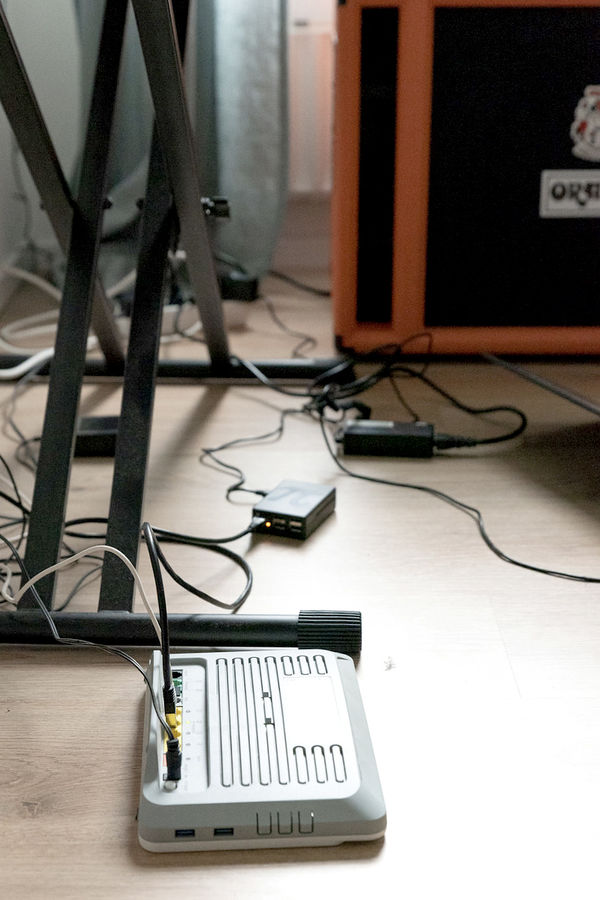
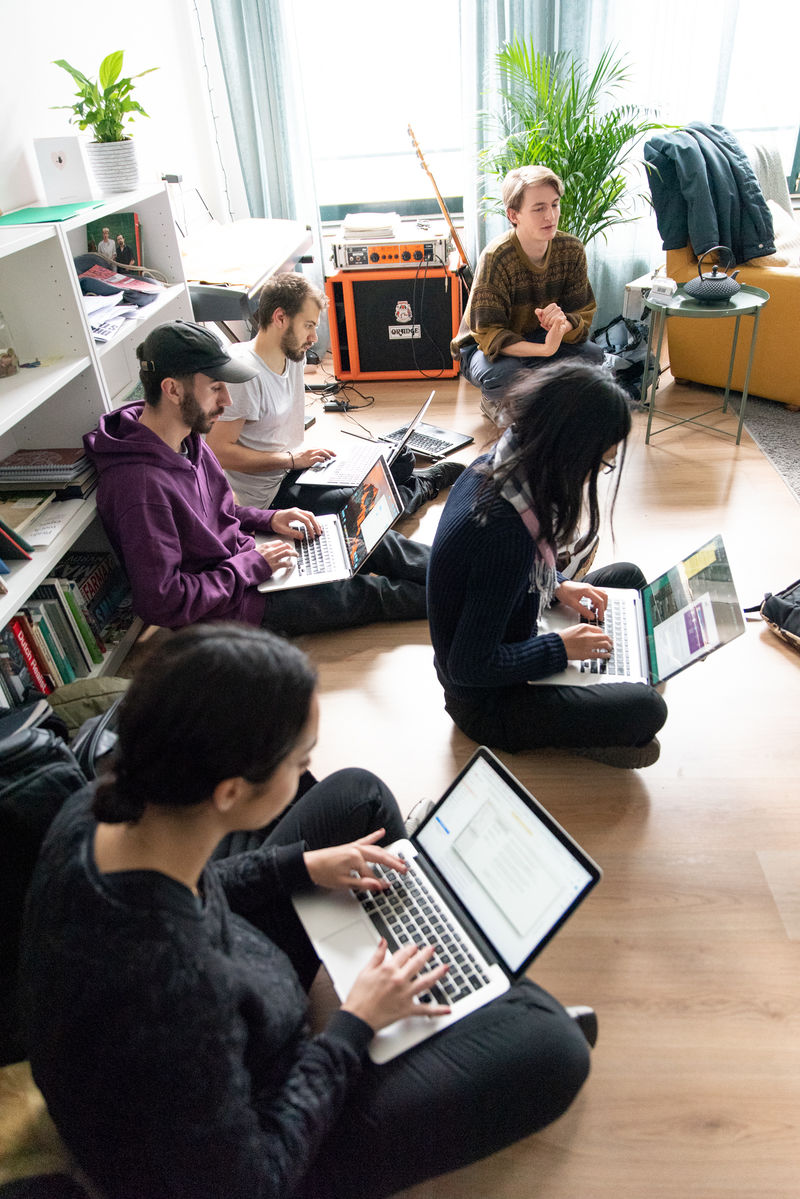
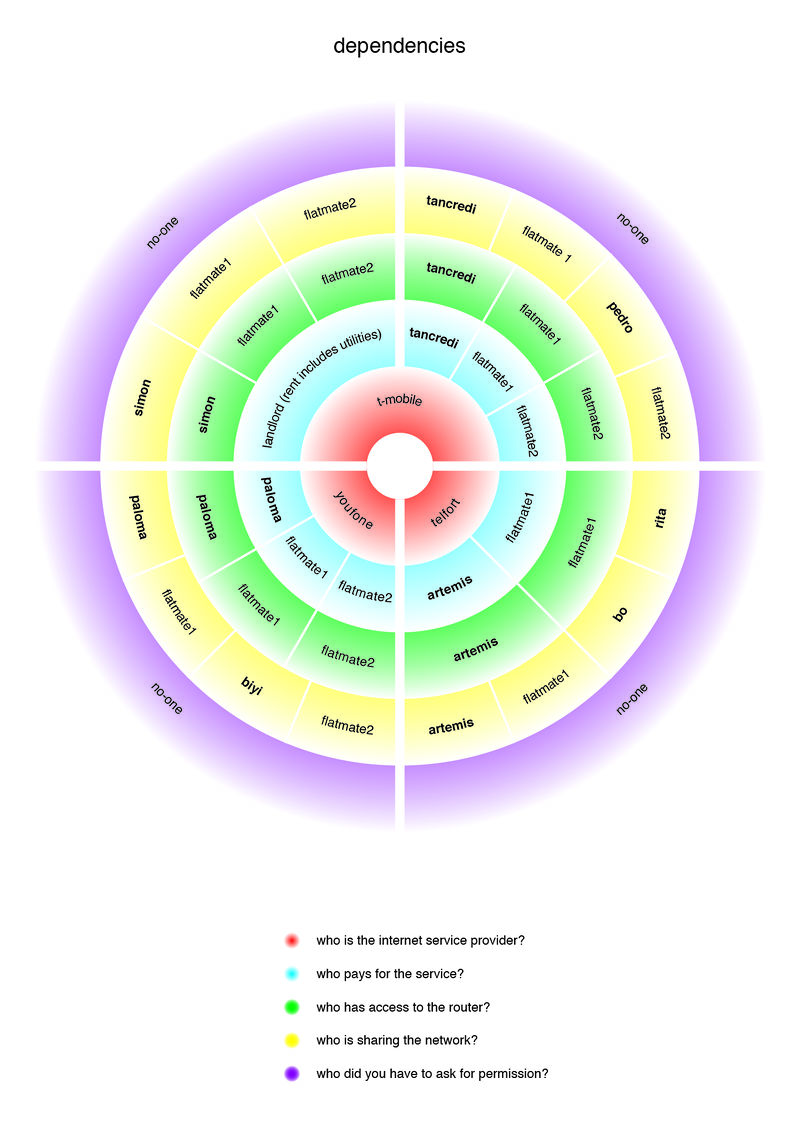
Publication
Launch at Varia
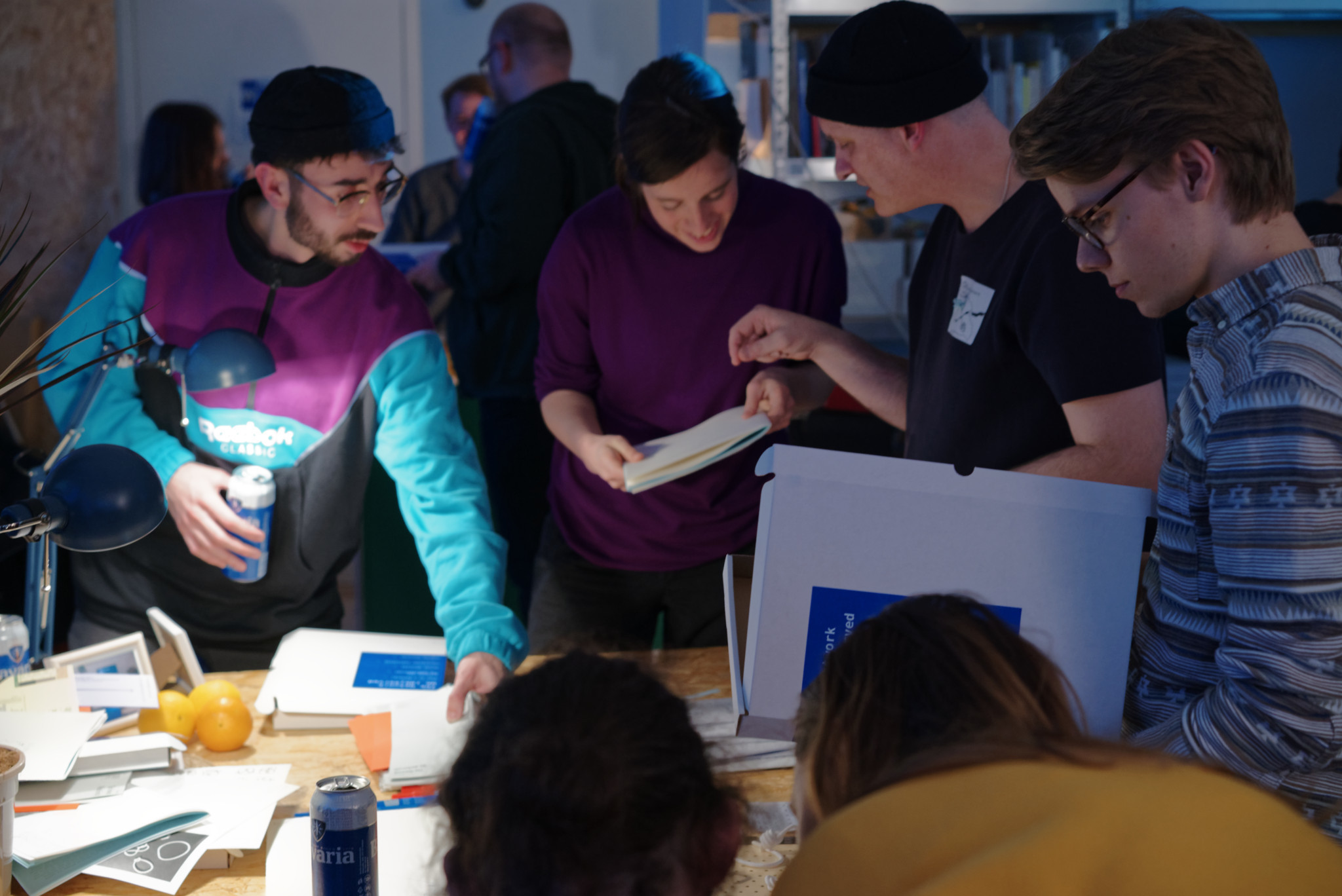
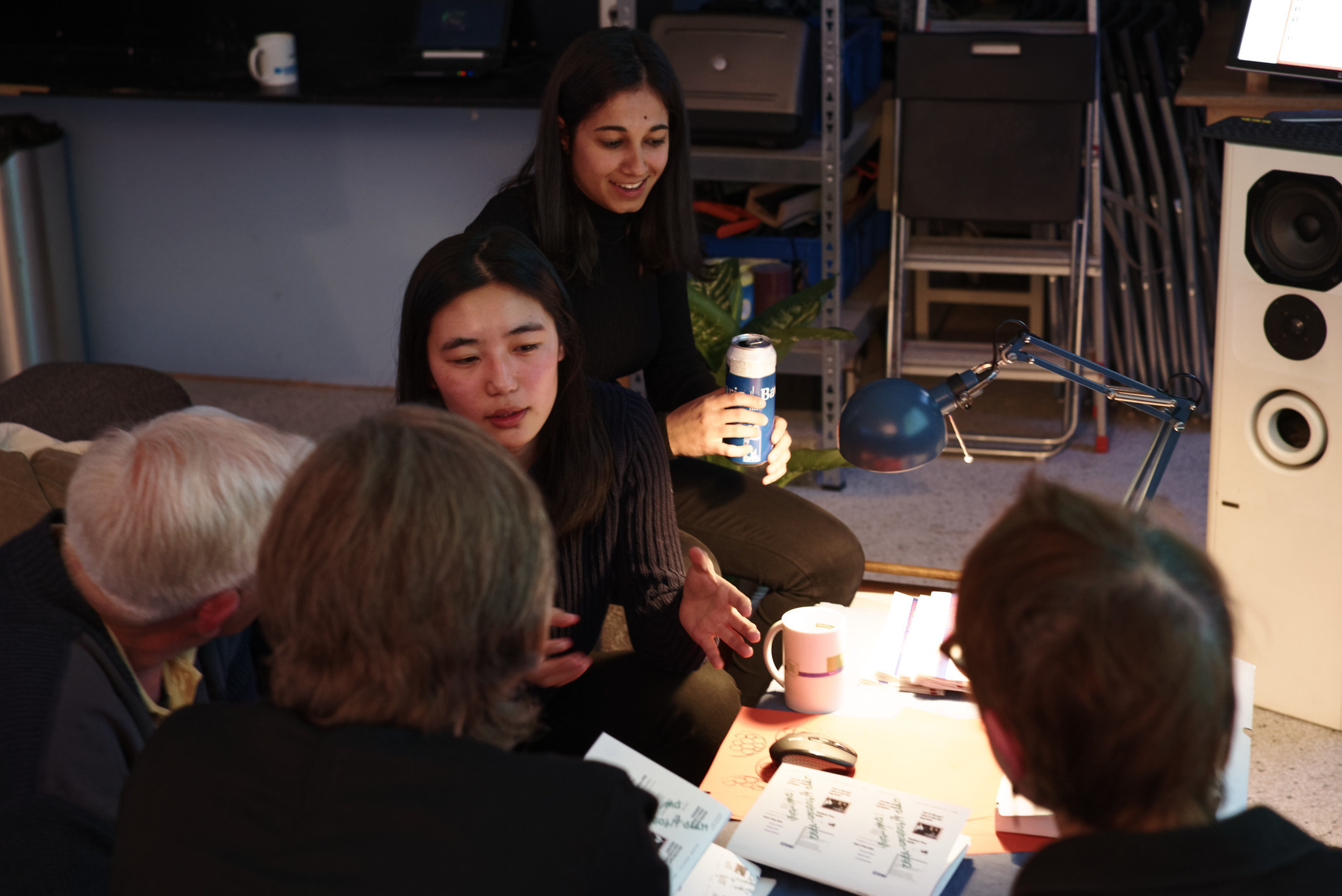
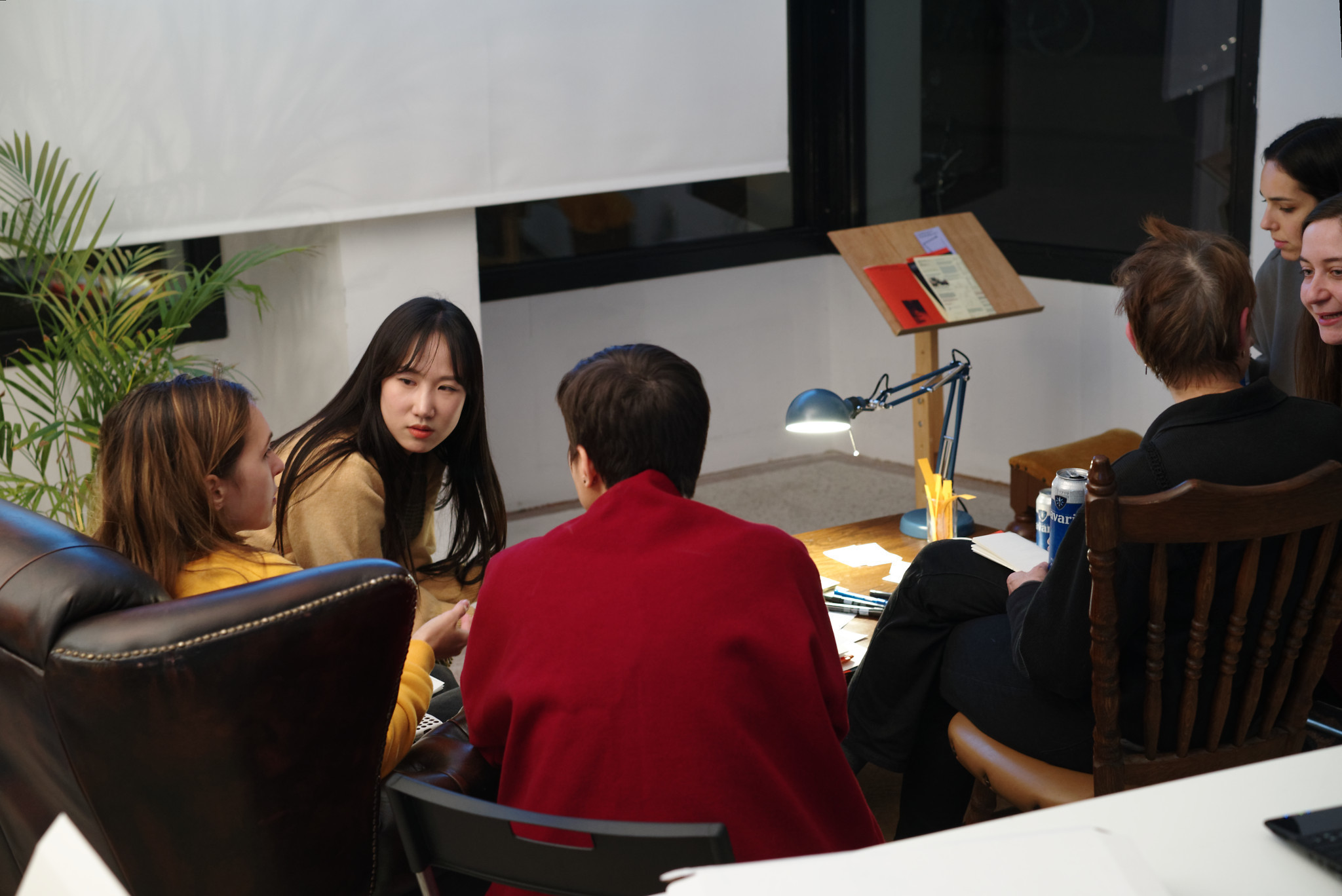
Web zines
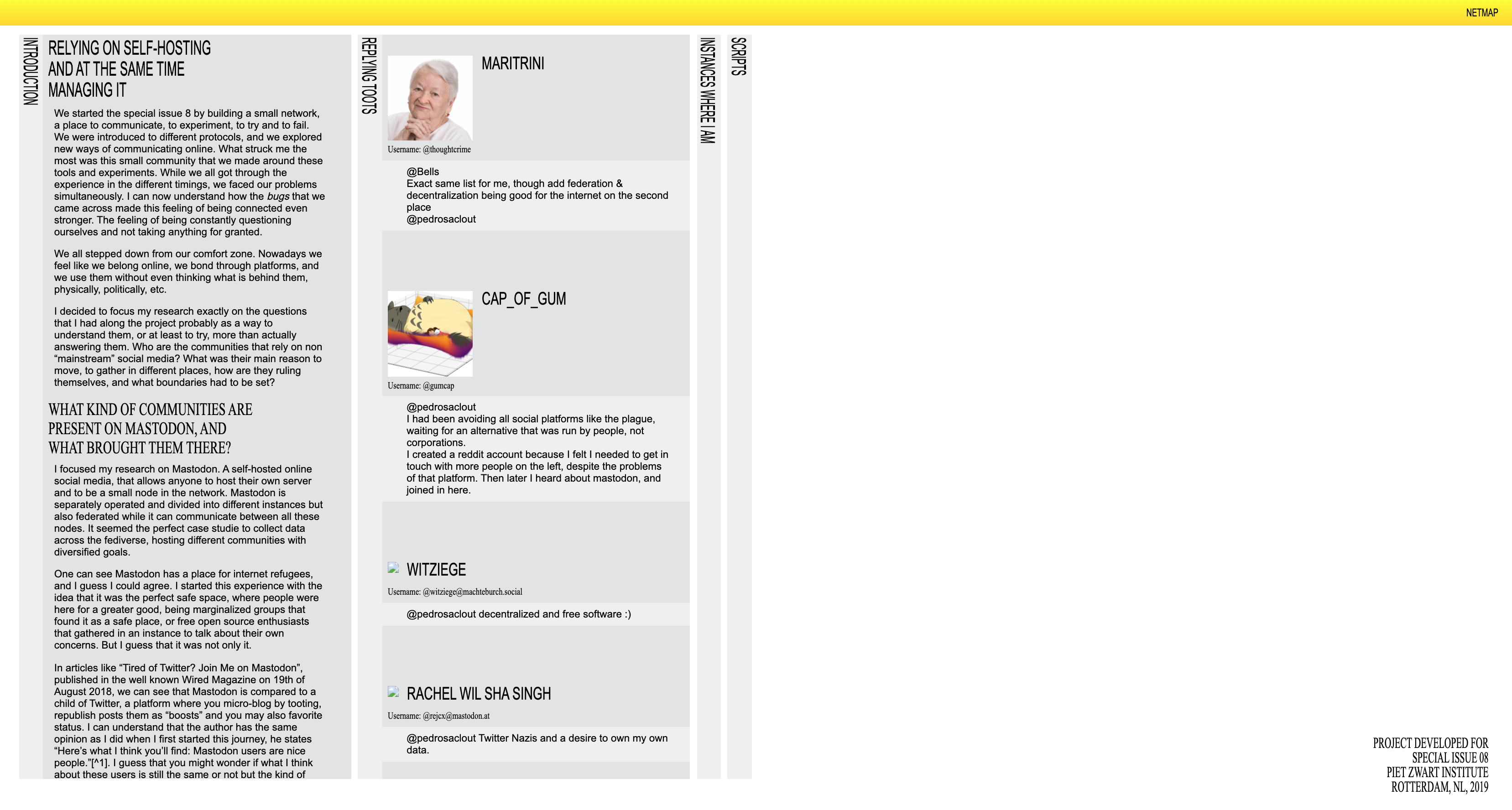
Relying on Self-Hosting and at the Same Time Managing It, Pedro Sá Couto.
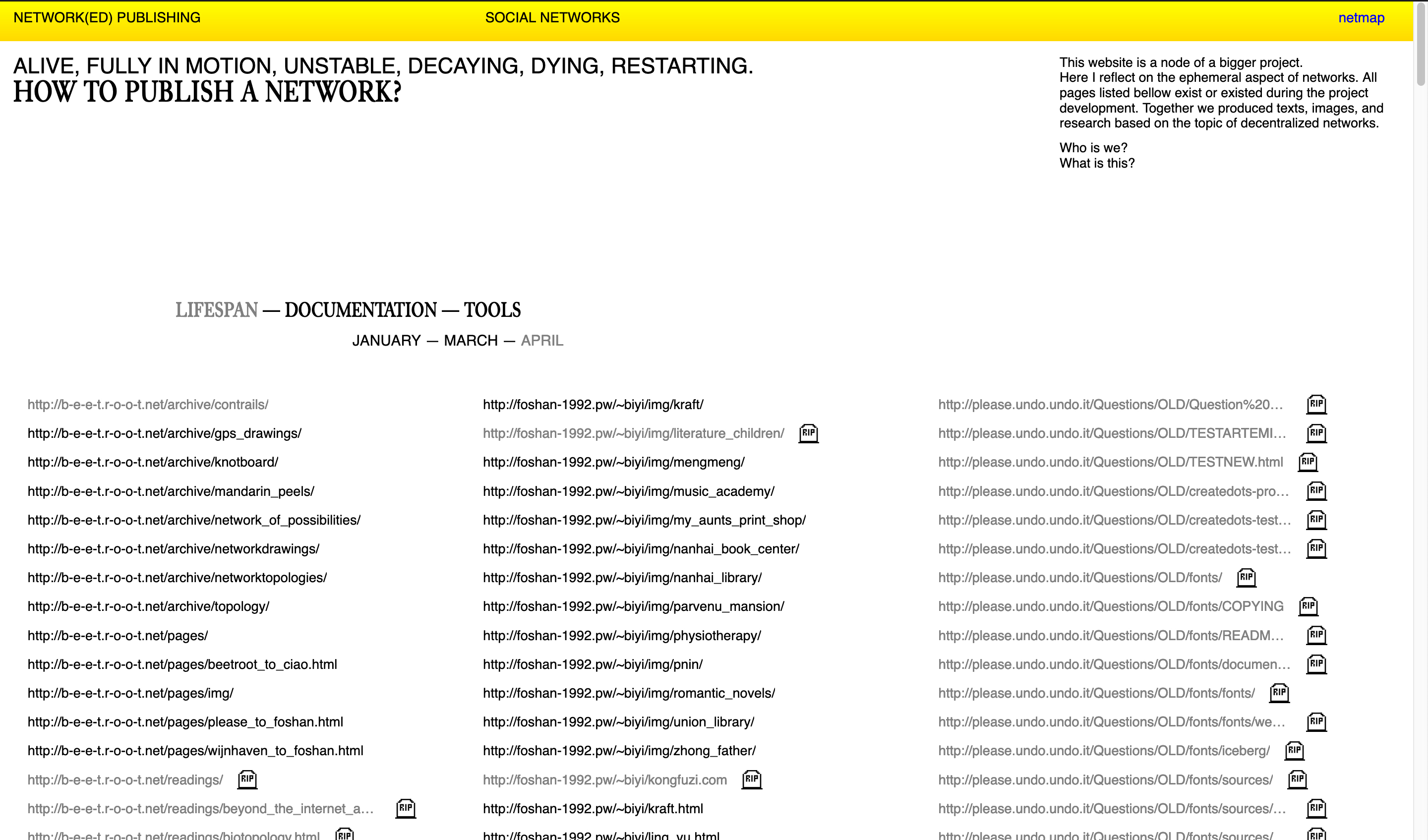
Alive, Fully in Motion, Unstable, Decaying, Dying, Restarting. Rita Graça.
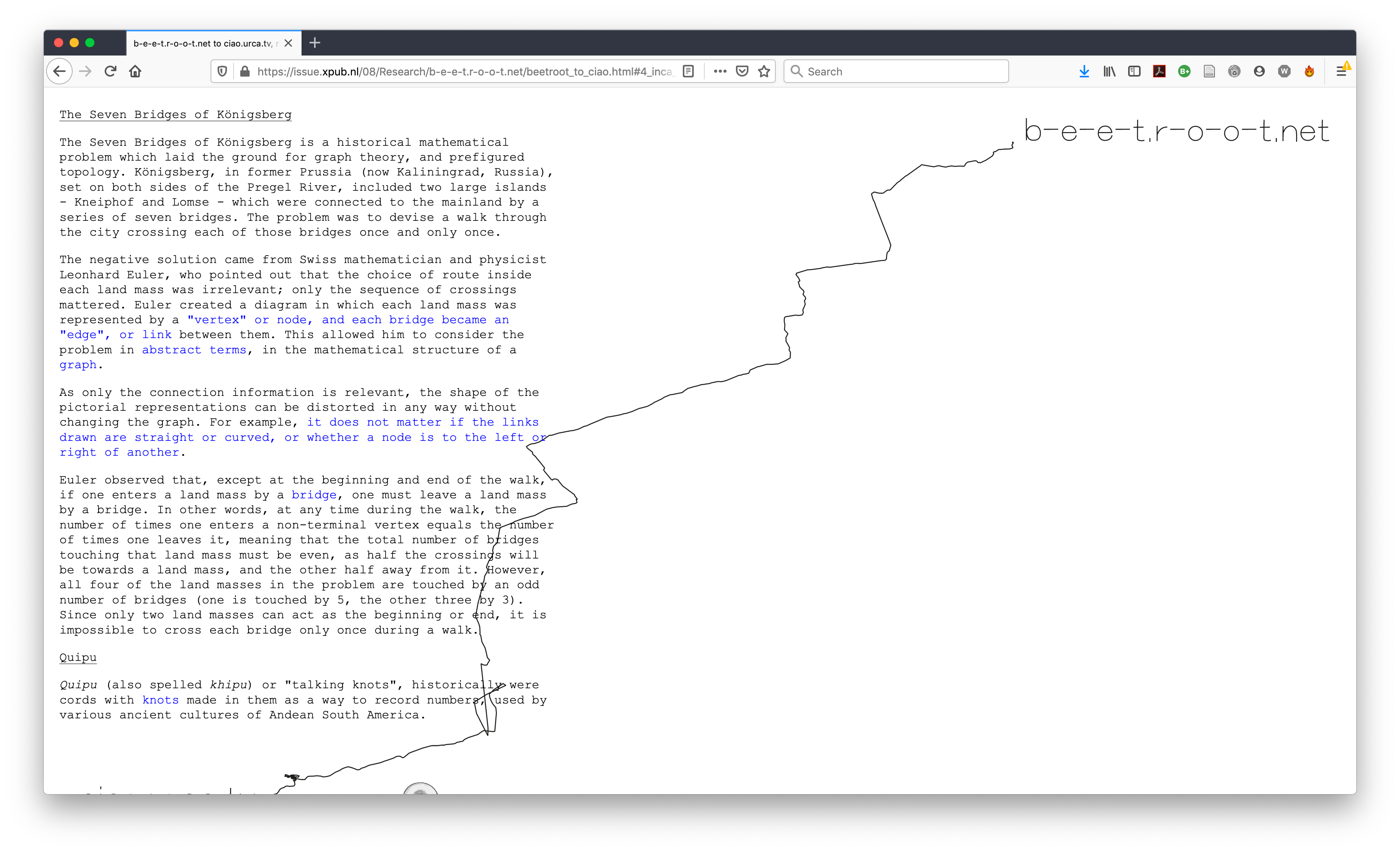
From Networks to Knotworks, Simon Browne. Understanding networks (digital and social) by walking, drawing, serving, mapping.

Questions on (Social) Networks, Artemis Gryllaki. Navigating through a collection of articles around social networks.
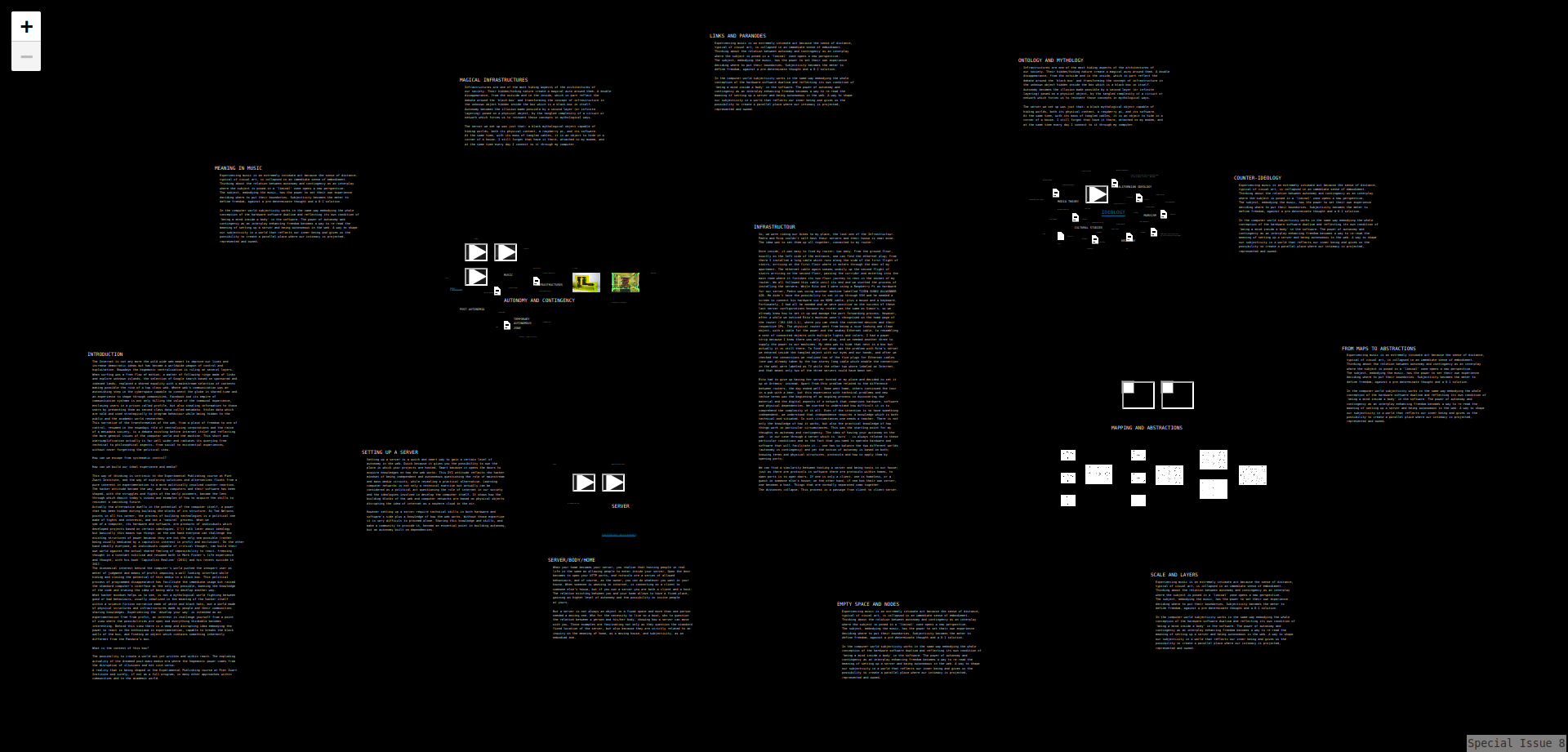
A Text Within a Map, Tancredi Di Giovanni. "Then you realise that were there was one thing, actually there are few, and the more you zoom in, the more universes you'll find with billions of ideas".
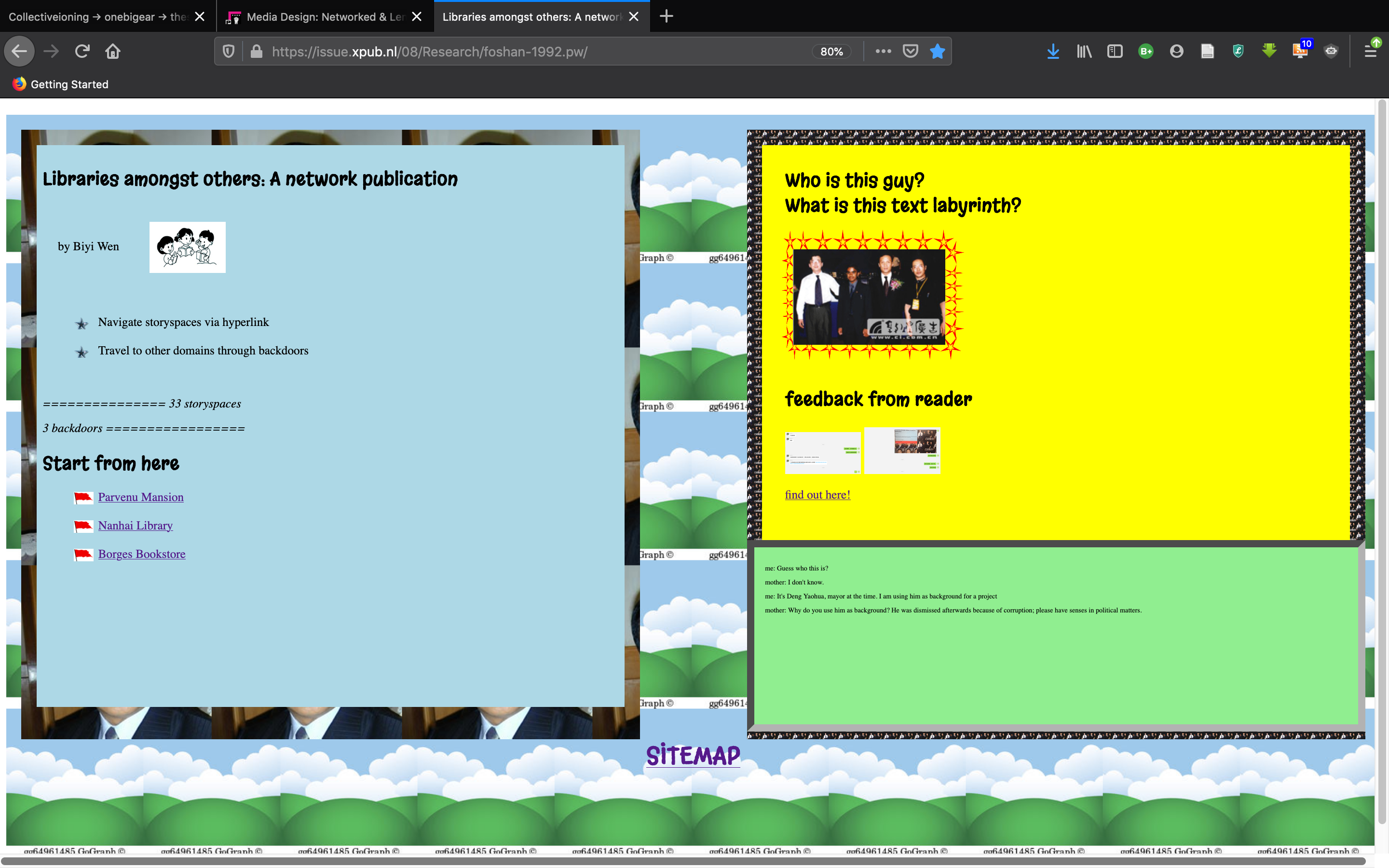
Libraries Amongst Others, Biyi Wen. A hypertext network mapping the inter-woven intricacies of post-socialist childhood memories.
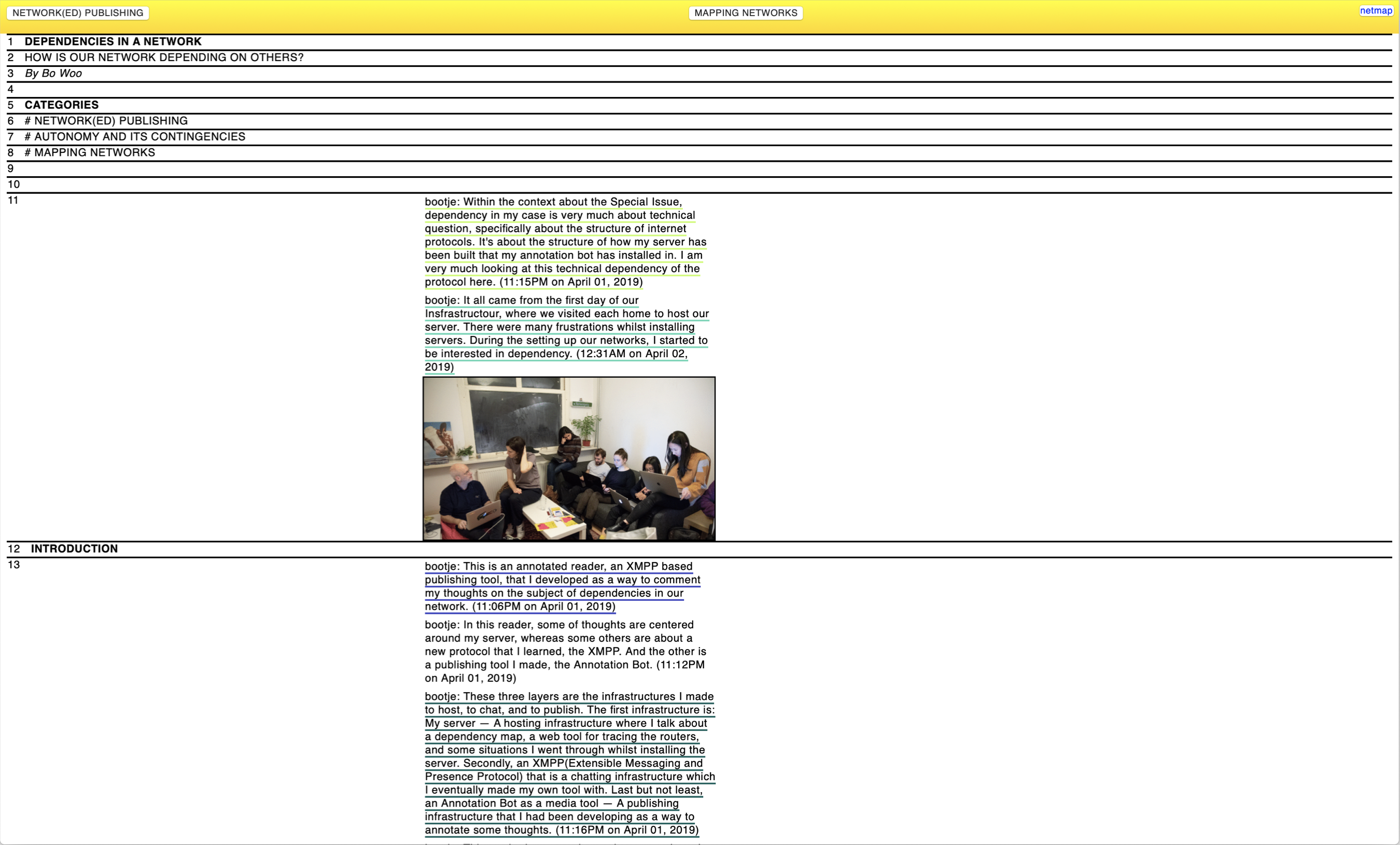
Dependencies in a Network. Bohye Woo. How is our network depending on others?
Printed zines

